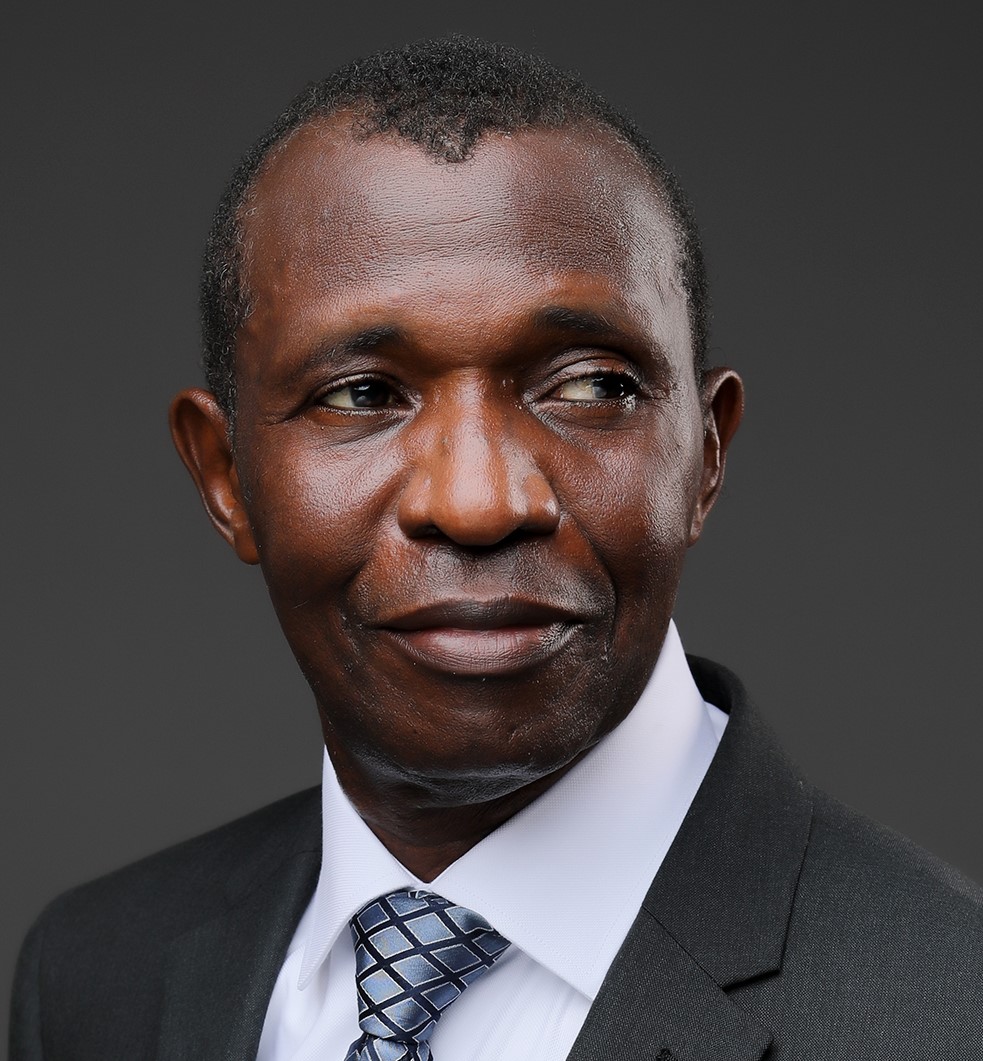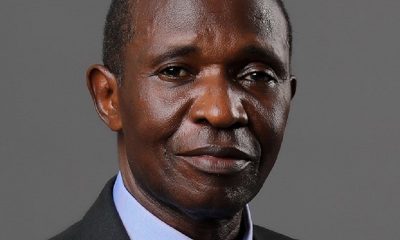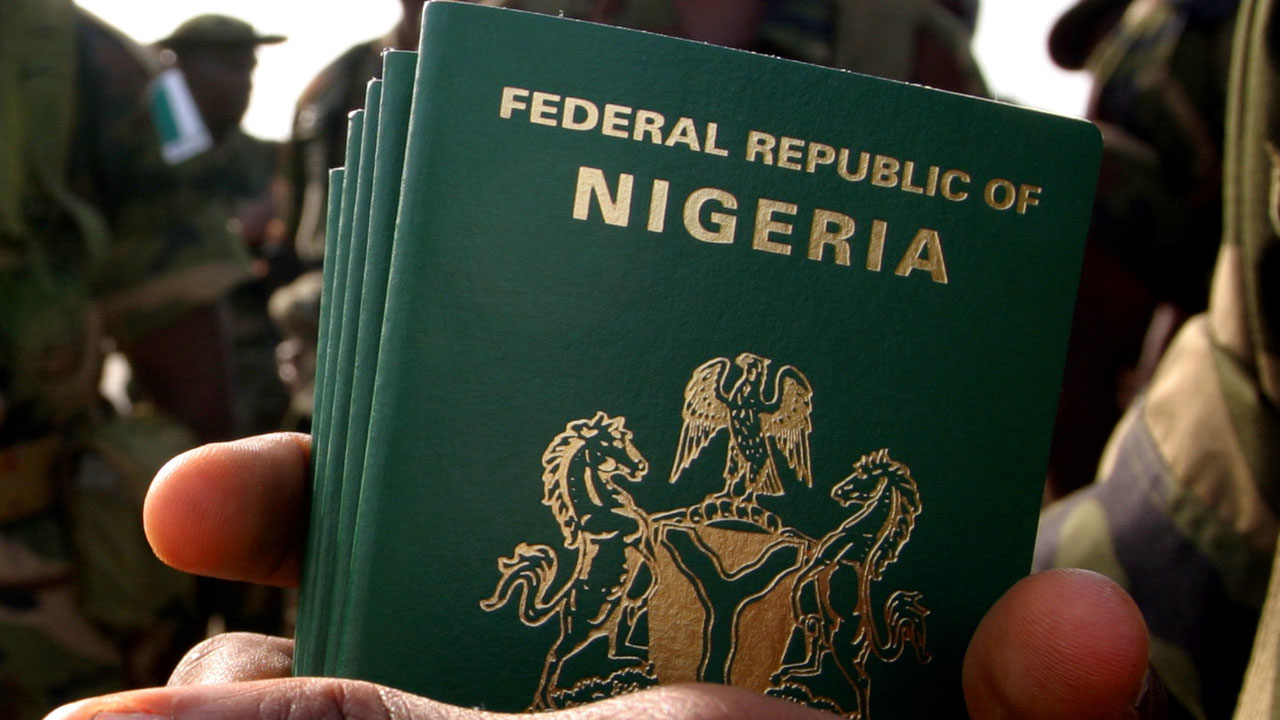Feature/OPED
Why the 2023 Population Census Must be Postponed

By Michael Owhoko, PhD
Without prejudice to the extent of preparations, has the government genuinely evaluated the reasons for the dispute and rejection of the previous census results in Nigeria before proceeding to organise another headcount? Results of censuses conducted in 1962, 1963, 1973, 1991 and 2006 were all marred by anomalies and controversies allegedly engendered by the manipulation and falsification of figures.
Were there any lessons learnt from these disputes? So far, all contentious issues that diminished and undermined the credibility of the previous exercises, together with emerging fresh challenges, are still widespread.
Distrust induced by ethnic dominance, religious supremacy, nepotism, inappropriate political structure, dishonesty, insecurity, corruption, poverty and socio-economic uncertainty are still staring at us as monsters. The preconceived notion of increased revenue and political representation as the basis for census rather than national planning and development is another matter.
Without visible and genuine efforts at resolving these hiccups, the National Population Commission (NPC), charged with conducting the census, including collation and analysis of population data, has scheduled the 2023 population census for April, approximately a month after the 2023 general elections holding between February and March.
The National Council of State has also endorsed the exercise without a rigorous evaluation of potential exposures.
The timing is a miscalculation in the face of current realities devoid of enabling environment. The general elections and census are inflammable events that should not be scheduled close to each other.
More worrisome is the fact that nobody can predict the outcome of the 2023 general elections, which may likely spill into the census period. From the body language of youths across the country who are major victims of years of misgovernance, it may not be business as usual. So, why schedule a census under this condition?
Perhaps, if the government had painstakingly carried out a risk assessment of the timing of the elections and census within the context of Nigeria’s sociological complex configuration, both exercises would have been staggered apart by a minimum of one year. No amount of risk mitigation strategy can contain associated emotions, particularly under a government that is challenged by a trust deficit. Rather than resolve these flaws, the government is treading the same path, with an erroneous expectation of credible outcome.
In a multi-ethnic society like Nigeria, where population census is used as a basis for revenue allocation, the stakes are high, and so, citizens’ trust in the government as an unbiased umpire devoid of sectional leanings must not be in doubt.
Unfortunately, the distrust that characterised the previously failed exercises is popping up. This is evident from the recent statement of Oyo State Governor, Seyi Makinde, when he advised NPC to “Be accurate and impartial. Declare what you capture. If the population of the state is less than 15 million, it is false and inaccurate. Do your work accurately.’’
By this declaration, Makinde has stirred up the hornet’s nest and is ready to reject any figure less than 15 million for Oyo State. In the past, the Lagos State government rejected the 2006 census while the Igbo socio-cultural organization, Ohanaeze, said the exercise reduced the Igbo to a minority group, casting aspersion on the credibility of the whole exercise.
Besides, all over the world, peace is a sine qua non and a critical factor for the conduct of a successful population census. It is for this reason nations first determine its availability and, where otherwise, take appropriate measures to promote it, particularly ahead of major sensitive milestones like national headcount.
Currently, Nigeria lacks peace that is adequate to guarantee a free and fair census. Except to live in denial, the country faces unresolved multifaceted crises. Peace is not only the absence of war but also the existence of impediments to human endeavours. Human delivery capacity in Nigeria is currently at its lowest ebb.
Where is the peace when travel and movement of goods by road or rail across the country is threatened by insecurity and associated risks? Nigerians now invoke divine intervention for safe arrival at their destinations before embarking on a journey by road.
Inadequate security cover to facilitate the safe deployment of men and census materials to all nooks and crannies of the country may hinder the exercise. This also explains why NPC has not been able to demarcate enumeration areas in all the 774 local government areas in the country.
In the northern part of the country, particularly in the North East and North Central, Boko Haram, ISWAP, Fulani herdsmen, terrorists and bandits hold sway, driving fear among travellers. The southern part is also not better, as travellers hold their breath until they get to their destinations due to fear created by these groups and other criminal elements. So, how do you conduct a credible census in this situation?
Many families have been displaced from their places of abode and ancestral homes, while others take refuge in the bushes or are in Internally Displaced People (IDP) camps. Those who have not returned to their homes for fear of being killed or kidnapped have not been accounted for. Traces of these group of persons have not been established to date by relations or friends and, so, are unavailable for enumeration.
The National Bureau of Statistics (NBS) recently admitted that insecurity affected data collection for field surveys. The Statistician-General of the Federation and CEO of NBS, Adeyemi Adeniran, disclosed this at a conference organized by the National Statistical Association in Keffi, Nasarawa State, where he said that enumerators were unable to access certain parts of the country for data collection due to insecurity.
With this revelation, do we need a prophet to tell us that the 2023 population census cannot be achieved? In the absence of any hidden agenda and desperation of the government to score a political point, the NPC knows that it is difficult to achieve a reliable census figure under the current security setting, as no magic can contain insurgency in the troubled areas before the commencement of census in April 2023.
Where is the peace when the corruption of the census process is fuelled by subsisting economic, political and demographic interests? Some census officials are compromised when gathering, collating, analysing and producing data on the population.
These officials are either bribed, intimidated or coerced to inflate or allocate numbers for ethnic advantage. This has been the trend in all the censuses conducted so far in Nigeria.
Where is the peace when the credibility and capacity of the present administration under President Muhammadu Buhari to deliver on such an important project is smeared by scepticism induced by nepotism and presidential preferences, which have fragmented the country along ethnic and religious lines? Suspicion and lack of trust among citizens have deepened more than ever before.
Where is the peace when the country’s border with the Niger Republic is opened and reinforced by the policy of issuance of visas on arrival, allegedly aimed at bloating the Fulani population in Nigeria? Illegal aliens from the Niger Republic enter the country unchecked, while others are alleged to have obtained National Identification Numbers (NINs) from the National Identity Management Commission (NIMC) to qualify them as citizens, thereby giving the north undue demographic advantage over the south.
Where is the peace when there is no grass root enlightenment campaign to draw attention to the exercise? The majority of Nigerians are unaware of a scheduled census for April next year due partly to a lack of access to electricity, internet and other communication networks. How many Nigerians can confidently affirm that their households were enumerated during the last trial census conducted by NPC ahead of the main exercise? I am sure millions of Nigerians were not aware.
Where is the peace when enumerators are constrained by poor demographic maps caused by unreliable digital technology, including geographic information system (GIS), satellite and aerial photographs, cartography and geographical positioning system (GPS), resulting in an inability to capture remote areas with difficult topography?
Where is the peace when insufficient capacity building and a dearth of qualified personnel are further constraints? NPC is currently not fully equipped with enough skilled personnel, forcing it to rely on ad-hoc and temporary personnel, including members of the National Youth Service Corps (NYSC) who are inadequately trained.
Notwithstanding the United Nation’s recommendation that a census is conducted every 10 years, Nigeria is not ready for the 2023 census. Population census is a sensitive matter that must be conducted under an atmosphere of peace to achieve a credible and desired outcome.
The 2023 population census should therefore be postponed until NPC has addressed all grey areas; otherwise, the exercise will amount to waste of time and resources, including the over N200 billion budgeted for the scheme.
Dr Mike Owhoko, Lagos-based journalist and author, can be reached at www.mikeowhoko.com
Feature/OPED
The Hidden Workforce of the 2026 Access Bank Lagos City Marathon

When the final runner crossed the finish line at the 11th edition of the Access Bank Lagos City Marathon (ABLCM), the applause began to fade. But for hundreds of workers across Lagos, the real work was just beginning.
Major highways had been closed to facilitate the event. Tens of thousands of runners moved through the city in a coordinated surge of athletic endurance. Thousands of bottles of water and energy drinks were distributed, alongside sachets containing essential medical supplies and medication. The race route itself was meticulously prepared, lined with banners, barricades, medical tents and precision timing systems that ensured safety, organisation and accurate performance tracking from start to finish.
What followed was the part that a few cameras lingered on, yet it remains one of the clearest indicators of institutional progress.
Within minutes of the race conclusion, coordinated sanitation teams fanned out across the marathon corridor. Their work went beyond sweeping. Waste was systematically sorted. Plastic bottles were separated from general refuse. Sachets were gathered in bulk. Collection trucks moved along predefined routes, ensuring rapid evacuation of waste. Temporary race infrastructure was dismantled with quiet precision.
In a megacity like Lagos, speed is a necessity. Urban momentum cannot pause for long. The ability to restore order quickly after an event of this magnitude reflects operational discipline across interconnected systems, municipal authorities, environmental agencies, private waste management partners and event coordinators.
Globally, large-scale sporting events are no longer evaluated solely by participation numbers or prize purses. Sustainability has emerged as a defining metric. Environmental responsiveness is now a core measure of credibility. Cities seeking tourism growth, foreign investment and international partnerships must demonstrate that scale does not compromise responsibility. The 2026 marathon provided a compelling case study in this evolution.
The clean-up operation itself generated meaningful economic activity. Temporary employment opportunities emerged for sanitation workers and logistics personnel. Recycling partners engaged in material recovery, reinforcing circular economy value chains. What was once viewed as routine waste disposal has evolved into a structured ecosystem of environmental services, a sector of increasing importance in modern urban economies.
This level of sustainability was the result of deliberate planning. Effective post-event recovery requires route mapping, waste volume projections, coordination between sponsors such as Access Bank Plc and municipal bodies, contingency planning for congestion points and clear communication protocols.
Each edition of the marathon has built on lessons from the last. International participation has expanded. Accreditation standards have strengthened. Media visibility has grown. Most importantly, environmental management has become embedded in the marathon’s operational framework rather than treated as an afterthought.
Progress rarely arrives in dramatic leaps, it advances through incremental improvements, refined systems and institutional learning. Just as elite runners close performance gaps through disciplined training, cities strengthen their global standing through consistent operational excellence.
The 2026 marathon, therefore, tells a story that extends far beyond athletic achievement. It is a story of coordination, sustainability as strategy rather than slogan, and the often unseen workforce, sanitation workers, planners, volunteers, security officials and environmental partners, whose discipline sustains the spectacle.
Because in the end, global cities are judged by how well they host and how responsibly they restore. On the marathon day in Lagos, it was the runners who demonstrated endurance and the systems, and the people behind them, who ensured that when the cheering stopped, the city kept moving.
Feature/OPED
N328.5bn Billing: How Political Patronage Built Lagos’ Agbero Shadow Tax Empire

By Blaise Udunze
Lagos prides itself as Africa’s commercial nerve centre. It markets innovation, fintech unicorns, rail lines, blue-water ferries, and billion-dollar real estate. Though with the glittering skyline and megacity ambition lies a parallel state, a shadow taxation regime run not from Alausa, but from motor parks, bus stops, and highway shoulders. They are called “agberos.” And for decades, they have functioned as Lagos’ unofficial tax masters.
What began as loosely organised transport unionism mutated into a pervasive and often violent system of extortion. Today, tens of thousands of commercial buses, over 75,000 danfos according to estimates by the Lagos Metropolitan Area Transport Authority, ply Lagos roads daily. Each bus is a moving ATM. Each stop is a tollgate. Each route is a revenue corridor.
Looking at the daily estimate from their operations, at N7,000 to N12,000 per bus per day, conservative calculations show that between N525 million and N900 million is extracted daily from drivers. Annually, that balloons toward N192 billion to N328.5 billion or more, money collected in cash, unreceipted, unaudited, unaccounted for. This illicit taxation on an industrial scale did not emerge in a vacuum.
The reality today is that to understand the scale of the problem, one must confront its political history. It was during the administration of Bola Ahmed Tinubu as Lagos State governor from 1999 to 2007, who is now the President, that the entrenchment of transport union dominance and motor park patronage deepened.
Under his political machine, transport unions became not just labour associations but mobilisation structures, formidable grassroots networks capable of crowd control, voter turnout engineering, and territorial enforcement. In exchange for political loyalty, street influence translated into operational latitude.
Motor parks became power bases. “Area boys” became enforcers. Union leadership became politically connected. What should have been regulated associations morphed into revenue-generating franchises with muscle.
The system outlived his tenure. It institutionalised itself. It professionalised. It is embedded in Lagos’ political economy.
And today, it thrives in broad daylight. Endeavour to visit Ajah under bridge, Ikeja under bridge, or Mile-2 along Ojo at 6:00 a.m. Watch drivers clutching crumpled naira notes. Observe men in green trousers and caps marked NURTW weaving between buses, collecting what drivers call òwò àrò, or evening as òwò iròlè money taken from passengers.
A korope driver shouts, “Berger straight!” His bus fills. The engines rumble. But before he moves, he must pay. If he refuses? The side mirror may disappear. The windscreen may crack. The conductor may be assaulted. The vehicle may be blocked with planks, and if they resist, the conductor or driver may be beaten. Movement becomes impossible. It is not optional.
This is common across Lagos, especially amongst drivers in Oshodi, Obalende, Ojodu Berger, Mile 2, Iyana Iba, and Badagry, and describes a three-layered structure ranging from street collectors, area coordinators, and union executives at each location. Daily targets flow upward. Commissions remain below.
One conductor disclosed he budgets at N8,500 daily for louts alone, excluding fuel, delivery to vehicle owners, and official tickets. Another driver says he parts with nearly N15,000 in total daily levies across routes.
Of N40,000 collected on trips, barely N22,000 survives before fuel. Sometimes, drivers go home with N3,500. Working like elephants. Eating like ants. The impact extends far beyond drivers.
Every naira extorted is transferred to commuters. An N700 fare becomes N1,500. A N400 corridor becomes N1,200 in traffic, and this is maintained even after fuel prices fall; fares rarely decline. The hidden levy remains.
Retail traders reduce stock purchases because transport eats profits. Civil servants watch salaries stagnate while commuting costs climb. Market women complain that surviving Lagos costs more than living in it.
This is not just a transport disorder. It is inflation engineered by coercion. Economists call it financial leakage, money extracted from the productive economy that never enters the fiscal system. Billions circulate annually without appearing in government ledgers. No roads are built from it. No hospitals funded. No schools renovated.
It is taxation without development. Small and Medium Enterprises form nearly half of Nigeria’s GDP and employ the majority of its workforce. In Lagos, they are under assault from informal levies layered on top of official taxes. Goods delivered by bus carry hidden transport premiums. Commuting staff face higher daily costs. Inflation ripples through supply chains.
The strike by commercial drivers in 2022 exposed the depth of resentment. Under the Joint Drivers’ Welfare Association of Nigeria (JDWAN), drivers protested “unfettered and violent extortion.” Lagos stood still. Commuters trekked. Appointments were missed. Businesses stalled.
Drivers alleged that half of their daily income vanished into motor park collections.
Some who protested were attacked. Yet the collections continued.
Drivers insist daily collections at single corridors can exceed N5 million. Park chairmen allegedly control enormous cash flows. Uniformed collectors operate with visible confidence.
Meanwhile, the Lagos State Government denies sanctioning any roadside extortion. Officials describe the tax system as institutionalised and structured. They promise reforms through Bus Rapid Transit, rail expansion and corridor standardisation. Yet the shadow toll persists.
Contrast this with Enugu State, where Governor Peter Mbah introduced a Unified e-Ticket Scheme mandating digital payments directly into the state treasury. Paper tickets were banned. Cash collections outlawed. Revenue flows are traceable. Harassment criminalised.
Drivers in Lagos say openly that they should be given a single N5,000 daily ticket paid directly to the government, and end the chaos. Instead, they face multiple actors, agberos, task forces, and traffic officials, each demanding settlement.
The difference is in governance philosophy. One digitises and centralises revenue to eliminate leakages.
The other tolerates fragmentation that breeds shadow collectors. The uncomfortable truth is that the agbero structure is politically sensitive. Transport unions are not just labour bodies; they are political instruments. They mobilise during elections. They maintain territorial presence. They command street loyalty. In return, they are allegedly tolerated, protected, or absorbed into broader political structures as they turn into war instruments and a battle axe in the hands of the government of the day. The underlying reality is that the agbero who are the street-level power structures and the government authorities benefit from each other; the line between unofficial influence and official governance becomes unclear, making reform politically sensitive.
The issue is not merely about street disorder; it is about economic governance. Illicit taxation distorts pricing mechanisms, reduces productivity, discourages the formalisation of businesses, and weakens public trust. If citizens are compelled to pay both official taxes and unofficial levies, compliance morale declines. Why comply with statutory taxation when parallel systems operate unchecked?
Dismantling them is not merely administrative; it is political. Perhaps unbeknownst to the people, the cost of inaction is immense. Lagos aspires to be a 21st-century smart megacity under such an atmosphere. But investors notice informal roadblocks. Businesses factor in unpredictability. Commuters absorb unofficial taxes daily. Across Lagos roads, the script repeats “òwò mi dà,” meaning, give me my money.
Passengers plead with collectors to reduce levies so they can proceed. Conductors argue over dues before departure. Citizens feel hostage to a system they neither elected nor authorised.
Taxation, constitutionally, belongs to the state. It must be legislated, receipted, audited and deployed for the public good.
Agbero taxation is none of these. It is coercive. It is not transparent. It is extractive. Lagos has launched rail lines and BRT corridors. The Lagos Metropolitan Area Transport Authority continues transport reforms. Officials promise that bus reform initiatives will eliminate unregistered operators. But reform cannot be selective. You cannot modernise rail while medieval tolling persists on roads. You cannot preach digital governance while cash collectors flourish at bus stops. You cannot aspire to global city status while informal muscle dictates movement.
The solution is not episodic arrests. It is a structural overhaul: mandatory digital ticketing across all parks; a single harmonised levy payable electronically; an independent audit of union revenue; protection for drivers who resist illegal collections; and political decoupling of unions from patronage networks.
The agbero empire is not merely about bus fares. It is about how patronage systems, once empowered, metastasise into parallel authorities. What may have begun as strategic alliance-building two decades ago has matured into a shadow fiscal regime embedded in daily life.
The challenge is that Lagosians are left with no choice as they now pay twice, once to the government, once to the streets. And unlike official taxes, shadow taxes leave no developmental footprint. No bridge bears their name. No hospital wing testifies to their billions. No classroom is built from their collections. Only inflated fares. Broken windscreens. Frustrated commuters. And drivers who sweat under the sun, calculating how much will remain after everyone has taken their cut.
The agbero question is ultimately a governance question. Is Lagos governed by law, or by tolerated coercion? Is taxation a constitutional function, or a roadside negotiation? Is political convenience worth permanent economic distortion? What is absolutely known is that the structure has a political backing and what politics created, politics can dismantle.
Unless meaningful reform takes place, Lagos will continue to remain a megacity with a shadow treasury, where movement begins not with ignition, but with payment to men who answer to no ledger without any tangible returns. This is to say that every danfo that moves carries not just passengers, but the weight of a system that taxes without law, collects without accountability and punishes the very people who keep the city alive.
Blaise, a journalist and PR professional, writes from Lagos and can be reached via: bl***********@***il.com
Feature/OPED
How to Nurture Your Faith During Ramadan

Many Muslims grow up learning how to balance life carefully. Faith, work, and responsibility all sit on the same scale, and during Ramadan, that balance becomes even more delicate. Days start earlier than usual, nights stretch longer, and energy is spent with intention.
Over time, this rhythm shapes more than schedules; it quietly shapes how Ramadan is experienced.
Between getting ready for work, navigating long days, preparing meals for iftar, observing prayers, and trying to rest, moments for reflection are often pushed to the side. When there’s finally time to pause, many people assume meaningful Islamic content requires complete silence, full attention, and emotional space, things that can feel scarce during the month.
They scroll past channels they believe may be too formal, or not suited to their everyday routine. They stick to what feels familiar, even if it doesn’t quite align with the spirit of the season and without realising it, they limit themselves.
What many don’t know is that content designed for moments like these already exists on GOtv. The Islam Channel offers programming that understands Ramadan as it is truly lived.
On the Islam Channel, viewers can find thoughtful discussions that explore faith in a way that feels relevant to modern life, educational programmes that break down Islamic teachings clearly and calmly, and inspiring shows that encourage reflection without feeling overwhelming. There are conversations that can play softly in the background while you’re cooking, reminders you can catch while getting dressed for work, and programmes that help you unwind gently after a long day of fasting.
What sets the channel apart is how it personalises Islamic themes, making them accessible not just during prayer time, but throughout the day. Its content is created to inform, reflect, and inspire, whether you’re actively watching or simply listening as life continues around you. And while it speaks directly to Muslim audiences, it also remains open and welcoming to non-Muslims interested in understanding Islamic values, culture, and everyday perspectives.
During Ramadan, television often becomes part of the atmosphere rather than the focus. And having access to content that aligns with the season can quietly enrich those in-between moments, the ones that often matter most.
This Ramadan, the Islam Channel is available on GOtv Ch 111, ready to meet you wherever you are in your day.
And here’s the exciting part: with GOtv’s We Got You offer, you can enjoy your current package and get access to the next package at no extra cost. There’s never been a better time to hop on and get more shows, more suspense, and more entertainment, all for the same price!
To upgrade, subscribe, or reconnect, download the MyGOtv App or dial *288#. For watching on the go, download the GOtv Stream App and enjoy your favourites anytime, anywhere.
-

 Feature/OPED6 years ago
Feature/OPED6 years agoDavos was Different this year
-
Travel/Tourism10 years ago
Lagos Seals Western Lodge Hotel In Ikorodu
-

 Showbiz3 years ago
Showbiz3 years agoEstranged Lover Releases Videos of Empress Njamah Bathing
-

 Banking8 years ago
Banking8 years agoSort Codes of GTBank Branches in Nigeria
-

 Economy3 years ago
Economy3 years agoSubsidy Removal: CNG at N130 Per Litre Cheaper Than Petrol—IPMAN
-

 Banking3 years ago
Banking3 years agoSort Codes of UBA Branches in Nigeria
-

 Banking3 years ago
Banking3 years agoFirst Bank Announces Planned Downtime
-

 Sports3 years ago
Sports3 years agoHighest Paid Nigerian Footballer – How Much Do Nigerian Footballers Earn



















